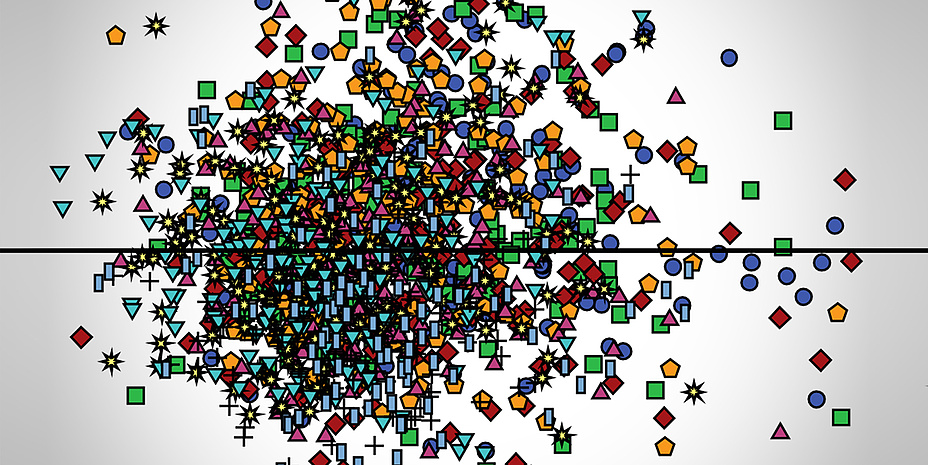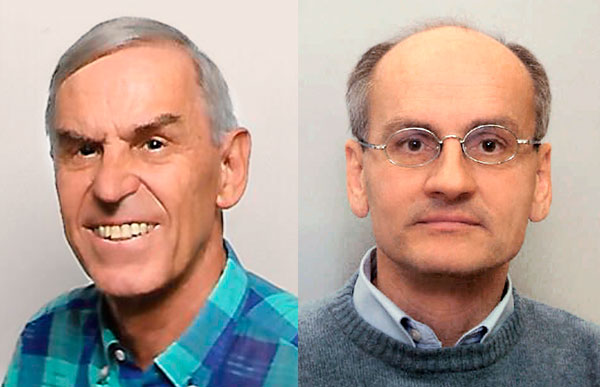Statistics: A compass in the data age

Since the coronavirus outbreak in Austria, the Institute of Statistics, in cooperation with AGES (an agency for health and food safety), has been providing a daily overview of the number of current COVID-19 cases. Where do you get the data for these calculations and what details do you provide?
Ernst Stadlober: The data originate from the Epidemiological Reporting System (EMS), in which the health authorities record and document every case of illness in accordance with legal requirements. AGES has access to this data and checks it for plausibility. Only then are they fed into our system for calculations. We analyse the cases of illness according to the date of the illness. Based on this, we estimate the daily rate of increase, the doubling time and the effective reproduction number, i.e. the number of subsequent cases generated by an infection case, using Poisson regression methods – a subfield of mathematical statistics.
How long do such real-time calculations take?
Wolfgang Müller: Ready-to-use tools are available for the calculation, which are activated virtually at the push of a button after the current data has been fed in.
What is the purpose of these epidemiological calculations?
ES: With these calculations, the developments surrounding SARS-CoV-2 in Austria can be shown down to the district level, as well as the age development of those affected and other factors. The results help the crisis teams to assess the current situation. You can evaluate the measures taken so far and use the calculations to run through possible scenarios.
How did the cooperation with AGES actually come about?
ES: At the request of AGES Professor Franz Allerberger, head of the public health division, I have been supervising one of his doctoral students, Lukas Richter, since 2016. Richter is a statistician at AGES and his dissertation deals with exciting epidemiological topics such as the effects of vaccination strategies. So it was only logical that we should also use our expertise to combat the coronavirus.
WM: Even before that, there have been joint projects with AGES, especially with the Graz branch, where our graduates, such as Klemens Fuchs, have repeatedly gained footholds in the professional world. He is head of the Integrative Risk Assessment, Data and Statistics department and studied technical mathematics at TU Graz with a focus on statistics.
AGES is probably not the only cooperation partner...
WM: Statistical knowledge is needed in many areas today. The list of companies we work with is correspondingly diverse. The spectrum ranges from players in the Austrian insurance industry such as Merkur Versicherung and Grazer Wechselseitigen to companies in the food analysis sector and industry giants such as AVL, ams, AT& S and Anton Paar. We also cooperate with public institutions such as the City of Graz, for which we prepare particulate matter forecasts, and the teaching hospital departments (Medical University of Graz). Many of these projects are carried out in the context of supervised final theses, i.e. master's or doctoral theses.
Keyword thesis: What are job opportunities like for your graduates?
WM: Generally very good. Today, all doors are open to anyone who can collect, analyse and evaluate data. Whether in the financial sector, in industry or in the public sector, the demand for our graduates is high. And those who want to make a career in research have attractive opportunities right on their doorstep with TU Graz, the Medical University of Graz and Joanneum Research.

Two statisticians with heart and soul: Ernst Stadlober (left) and Wolfgang Müller. © TU Graz – Institute of Statistics
You previously mentioned the data age. How has digitalisation changed the subject?
WM: Statistical work has changed greatly due to the facilitated or automated access to data. Data analysis today requires not only sound mathematical knowledge but also a great deal of know-how in computer science. The subject of statistics is now part of data science. Our Institute also follows this development. Starting in winter semester 2020/21, we offer a module for data science as part of the master's programme in computer science.
ES: In addition, we also organise a data science course as part of the TU Graz Life Long Learning programme.
What do prospective students need to bring with them?
WM: Statistics is part of the bachelor’s and master’s programmes of mathematics. In this respect a mathematical talent and problem solving skills are advantageous. But statistics is also a very interdisciplinary subject. For example, our Institute provides basic training in the fields of statistics, probability theory and stochastics in the computer science programme as well as in software engineering and mechanical engineering. Tomorrow's statisticians should therefore be able to communicate since they will often have to deal with people from other disciplines.
This research area is anchored in the Field of Expertise Information, Communication & Computing, one of the five strategic research foci at TU Graz.
Kontakt
TU Graz | Institute of Statistics:
Wolfgang Müller
Ao.Univ.-Prof. Dipl.-Ing. Dr.techn.
Tel.: +43 316 873 6479
w.mueller@tugraz.at
Ernst Stadlober
Univ.-Prof.i.R. Dipl.-Ing. Dr.techn.
e.stadlober@tugraz.at




